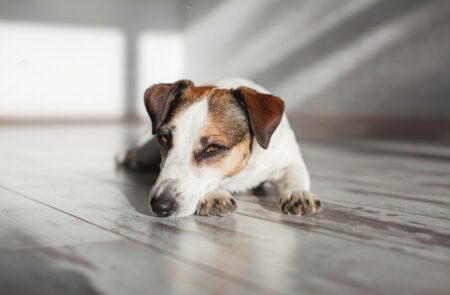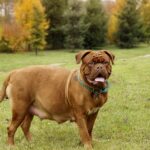Why Is My Dogs Nose Running?
Mucus or discharge from a dog’s nose can be caused by a number of factors, including allergies, upper respiratory infections, or occasionally, foreign bodies. It is important to be aware of the other symptoms that accompany the nasal discharge, so you can best help your dog in feeling better. In this article, you will learn the most common causes of a runny nose in dogs, as well as what to do if your dog’s nose is running.
Why Is My Dogs Nose Running?
- Allergies: If your dog is exposed to something they are allergic to, it may cause their nose to run. Common allergens include fleas, dust, molds, pollen, fabrics, and foods.
- Infections: A variety of infections, such as bacterial, fungal, and viral, can cause your dog’s nose to run. A bacterial infection is the most common cause of a runny nose. It can be caused by bacteria such as Streptococcus, Staphylococcus, and others.
- Cold: A common cold in dogs can lead to a runny nose. A dog’s cold is similar to a human’s cold and can cause sneezing, coughing, and a runny nose.
- Upper Respiratory Infection: This is similar to a cold, but is usually more serious and can cause more severe signs. An upper respiratory infection is caused by a virus and can cause a runny nose as well as other symptoms.
- Kicks: Dogs may suffer from kennel cough, which is an inflammation of the upper respiratory tract caused by a bacterial or viral infection. Kennel cough can cause a runny nose as well as coughing and sneezing.
- Foreign Object Blockage: If your dog has gotten an object stuck in its nose, it can lead to a runny nose. If you suspect a foreign object is the cause of your dog’s runny nose, you should take them to the vet to have it removed.
- Nasal Mites: Parasites known as nasal mites can cause a runny nose in dogs. These mites, which live in the nasal passages, can be difficult to treat and can cause a lot of discomfort for your dog.
- Eye Infections: If your dog has an eye infection or has contracted conjunctivitis, it can affect their nasal passages and cause a runny nose. Eye infections should be treated by a vet to avoid further complications.
- Stress or Anxiety: Stress or anxiety can cause your dog’s nose to run. If your dog is exposed to something new, loud noises, strangers, or long car rides, these can all cause a dog to become anxious and have a runny nose.
- Dry/Cracked Nose: If your dog’s nose is dry or cracked, it may start to run. This is more common in cold weather and can be treated with a moisturizing ointment or petroleum jelly.
What is Runny Nose?
A runny nose in dogs is an indication of an upper respiratory infection or an allergic reaction. It is usually accompanied by other symptoms such as coughing, sneezing, nasal discharge, and lethargy. It can be caused by a variety of factors such as a viral or bacterial infection, allergies to certain elements in the environment, or even the presence of a foreign body in the nose.
Diagnosis of Runny Nose in Dogs
Diagnosis typically starts with a discussion about the dog’s medical history and a physical exam in order to rule out any obvious causes. Additional testing might include laboratory testing such as blood work and X-rays, and imaging tests such as CT scans or MRIs. Depending on the findings, further testing such as rhinoscopy, endoscopy, bronchoscopy, or biopsy may also be needed for diagnosis.
Symptoms of Runny Nose in Dogs
- Discharge from the nose: The most common symptom of a runny nose in dogs is a thin, watery discharge from one or both of the nostrils. This discharge may be clear, yellow, green, or brown in color and can have an unpleasant odor.
- Sneezing: Dogs with a runny nose may frequently sneeze or snort in order to expel the excess mucus from the nasal passages.
- Coughing: Runny noses can cause dogs to cough as a result of their bodies trying to clear the airways of mucus or fluid.
- Decreased appetite: Dogs with a runny nose may experience a decrease in appetite because the discharge can be distracting or unpleasant.
- Lethargy: Runny noses can cause dogs to become listless and fatigued, especially when the condition is acute.
- Reverse sneezing: Reverse sneezing is a reaction to irritation in the nasal passages caused by a runny nose. This sudden onset of rapid bouts of snorting or snoring can last several minutes and can be quite alarming for pet owners to witness.
Dog Nose Dripping Anxiety
If your dog’s nose is dripping due to anxiety, it is important to take them to the vet right away to determine if they are ill or if their symptoms are due to anxiety. Your vet may recommend a course of anti-anxiety medications or a calming herbal supplement to help reduce your dog’s stress and anxiety. Additionally, they may recommend behavior modification and/or environmental modification to help reduce your dog’s stress and anxiety. Finally, scheduling regular playtime and exercise for your dog can help reduce their anxiety and improve their overall well-being.
SEE ALSO: Dog Seizures When To Put Down: Vet Advice!
Senior Dog Nose Dripping
If your senior dog’s nose is dripping, it may be due to a variety of conditions. Depending on the cause, treatment may vary. Excessive nasal discharge may be due to allergies, bacteria or virus infections, foreign objects, tumors or polyps, trauma, endocrine abnormalities, or dental problems. If the discharge is discolored or foul-smelling, seek veterinary care. If the discharge is clear and odorless, you may want to try to identify the cause by examining the environment, diet, or activities that may be causing an allergic reaction. If the discharge continues, bring your senior dog to the veterinarian for a complete examination and diagnosis.
My Dog Has A Runny Nose And Sneezing
If your dog is experiencing these symptoms, it might be best to take him to the vet. Dogs can develop a wide range of illnesses, from minor colds and allergies to more serious infections. Your vet will be able to diagnose and treat the issue more accurately.
My Dog Has A Runny Nose And Is Shaking
If your dog has a runny nose and is shaking, this could be a sign of an underlying medical condition such as a respiratory infection, allergies, or even an injury. It can also be a sign of stress or fear. To determine the cause of your dog’s symptoms, it is best to take them to the vet for a thorough examination.
Dog Runny Nose And Panting
A runny nose and panting are common symptoms in dogs that can be caused by a variety of conditions. Common causes of a runny nose and panting in dogs include infection, allergies, over-exercise, and heat stroke. It is important to check with your veterinarian to determine the best course of action for your individual dog.
Treatment For Runny Nose in Dogs
- Humidifier: Using a humidifier in your home or kennel can help moisten the dry air, and can potentially help alleviate a dog’s runny nose.
- Antibiotics: If your vet suspects that your dog has a bacterial infection, he or she may prescribe antibiotics.
- Nasal Drops: Nasal drops, such as saline or lubricant drops, can help alleviate congestion in the nasal passages and make breathing easier.
- Allergy Medication: If your dog has allergies, an antihistamine or other allergy medication may help reduce symptoms such as a runny nose.
- Hydrotherapy: Hydrotherapy, or water therapy, involves using a jet of water to help clear the nasal passages.
- Dietary Changes: Changing your dog’s diet to eliminate potential allergens or other irritants may help reduce symptoms of a runny nose.
Taking Care of Your Dog’s Nose
- Clean your dog’s nose regularly. Apply a warm cloth to the nose and gently wipe away any dirt or debris.
- Check for any signs of irritation. Look for redness, bumps, sores, or other changes in the skin. Be sure to contact your vet if you notice any of these signs.
- Make sure your dog is getting enough moisture. Try adding a humidifier to your home to help keep the air moist. Applying a balm or ointment to the area can also help keep the nose area moisturized and comfortable.
- Keep an eye out for crusting or bloody discharge. These can indicate an infection or something more serious, and you should have your vet take a look.
- Avoid irritants. Make sure that anything you use to clean your pup’s nose is free of fragrances, alcohol, or chemicals.
- Make sure to keep your pup away from anything that may harm its nose. This includes cleaners, insect repellents, fertilizers, and other chemicals or products.
What To Do If Your Dog Has a Runny Nose
If your dog has a runny nose, it’s best to take them to the vet for a checkup as soon as possible. A runny nose can be a sign of infection, allergies, nasal tumors, or other illnesses. Your vet will be able to determine the cause of the runny nose and give you treatment options for it. In the meantime, watch for other signs of illness such as decreased appetite, lethargy, vomiting, and diarrhea. If your dog has any of these signs, seek immediate veterinary attention.
Dog Runny Nose Treatment at Home
- Make sure your dog is warm and comfortable. Cold air can irritate a runny nose, so try to keep your dog indoors and away from drafts.
- Ensure your dog is adequately hydrated by providing fresh, clean water at all times. This will help thin any mucus and keep your dog’s nasal passages clear.
- Use a mild saline solution (approved for pets) to flush the nose twice daily. You can find these solutions over the counter at pet stores or online.
- To ease any discomfort your dog may have, you can gently massage the area around their nasal passages with some coconut or olive oil. This will help loosen any congestion.
- If your dog has an underlying condition, such as allergies, consider having an allergy test done to determine what is causing the runny nose. Your vet may recommend specific treatments depending on the results.
- If you notice any changes in your dog’s breathing, or your dog’s nose does not clear up after a few days of home treatment, contact your veterinarian immediately.
SEE ALSO: A-Z About Dog Swollen Anus Treatment at Home
FAQs
Q. What do I do if my dog has a runny nose?
A. Runny noses in dogs can sometimes be a symptom of an underlying infection, so it’s a good idea to take your pet to the vet to get it checked out. Depending on the diagnosis, your vet may prescribe antibiotics or other medications. If the cause is allergies or mild irritation, your vet may recommend over-the-counter treatments such as nasal sprays, eye washes, or antihistamines. Be sure to follow the vet’s instructions and all dosage instructions carefully. Additionally, make sure to keep your pet’s living area clean and free of irritants that could contribute to the problem.
Q. What are the signs of a nose infection in dogs?
A. The signs of a nose infection in dogs can include but are not limited to sneezing, nasal discharge, coughing, reverse sneezing, facial swelling, decreased appetite, and a sniffing or snorting sound when breathing. Other signs can include pawing at the nose, excessive licking of the nose, and difficulty breathing.
Q. How long does a dog’s runny nose last?
A. Generally speaking, a runny nose can last from a day to several weeks depending on the underlying cause.
Conclusion
In most cases, your dog’s runny nose is a sign of a common condition such as allergies or a cold. While this is usually not a cause for concern, it’s important to be aware of potential signs of more serious conditions, like infections or disease. If your dog develops a discharge or shows signs of discomfort or labored breathing, it’s important to seek veterinary care right away. By paying close attention to your dog’s nose, you can quickly act if the condition worsens.


